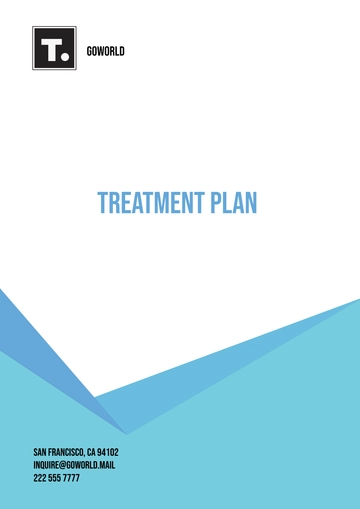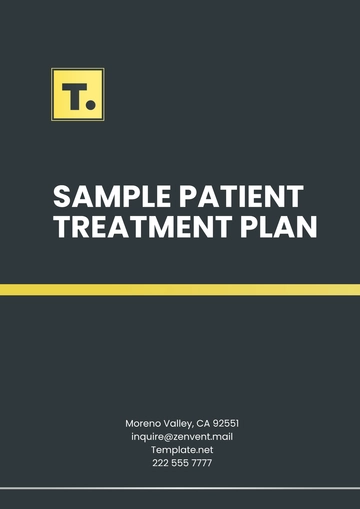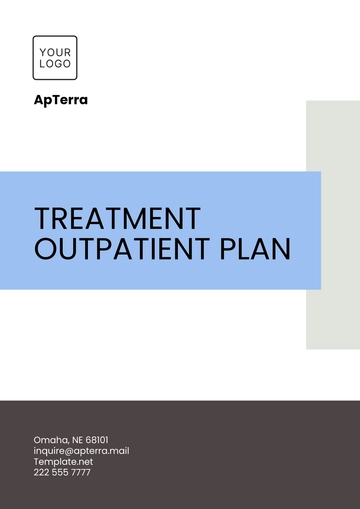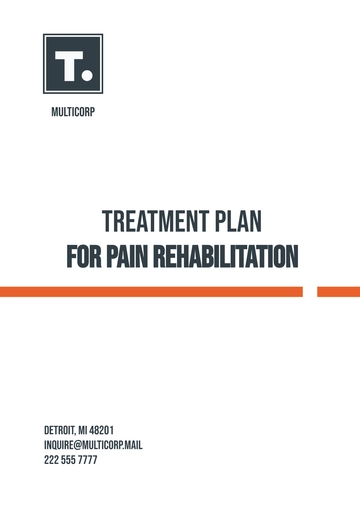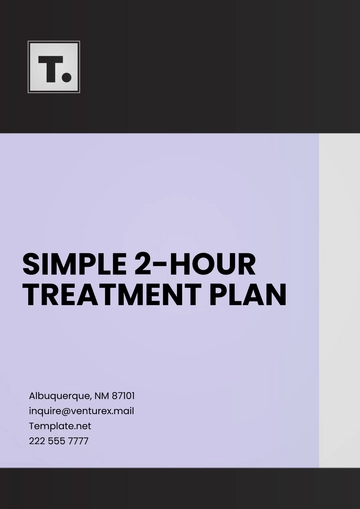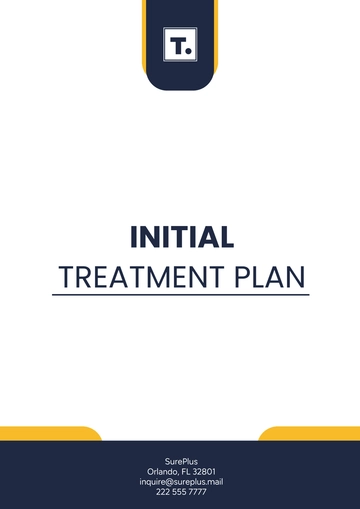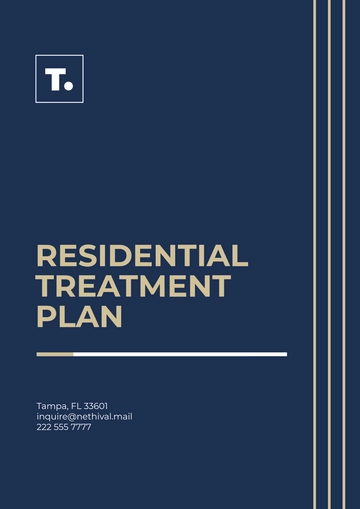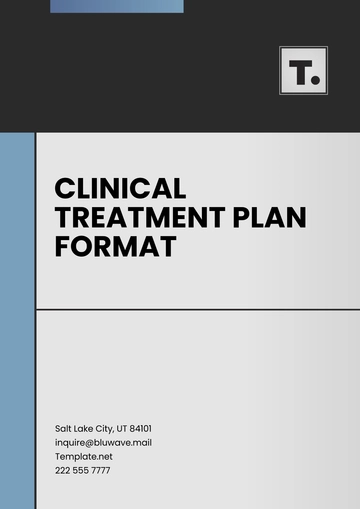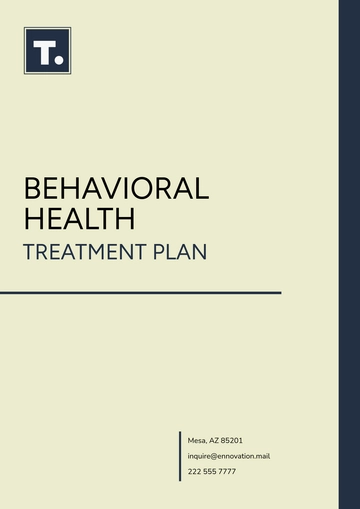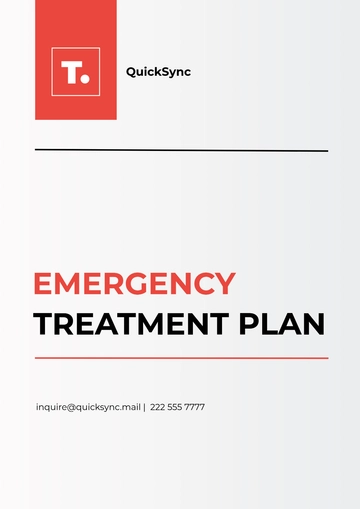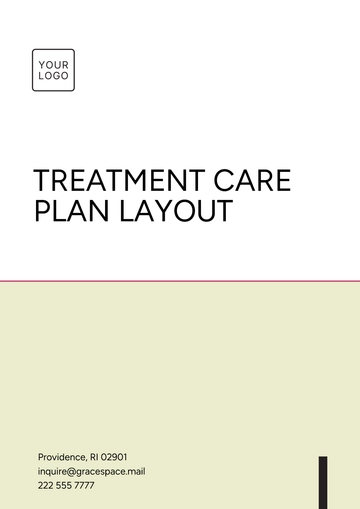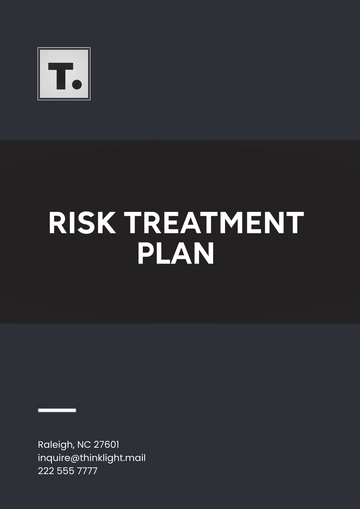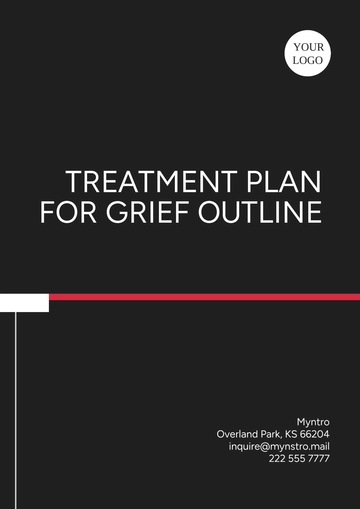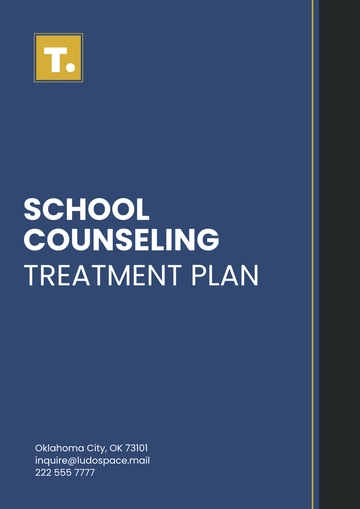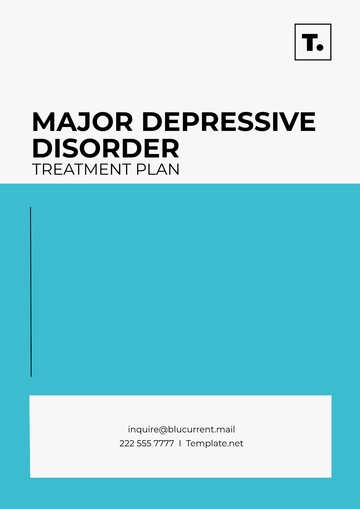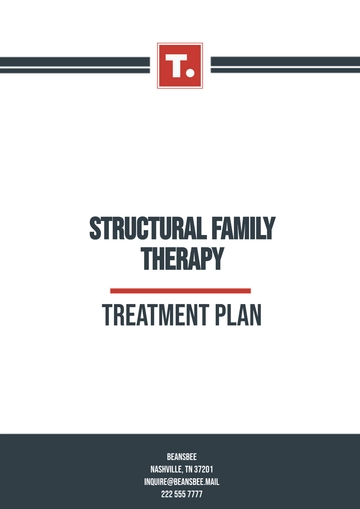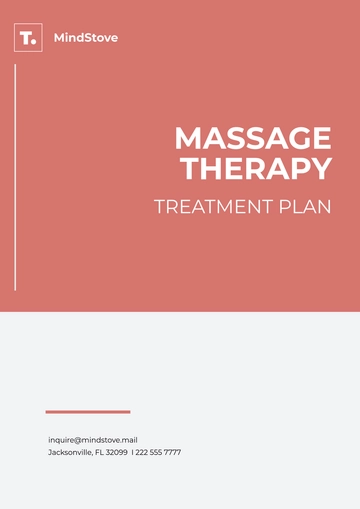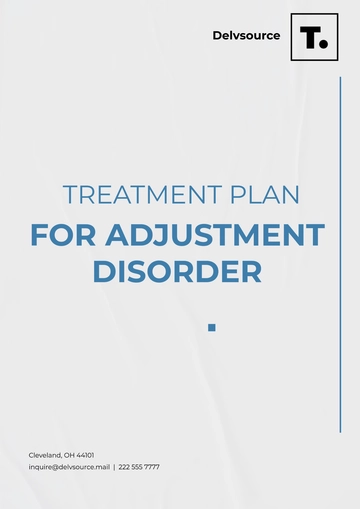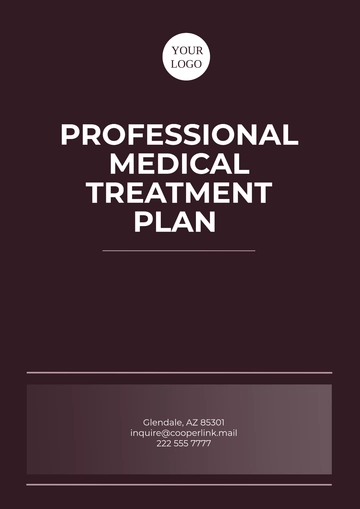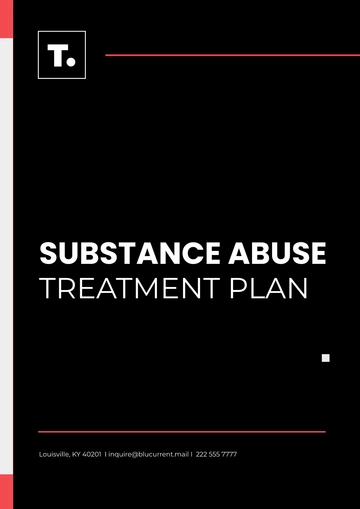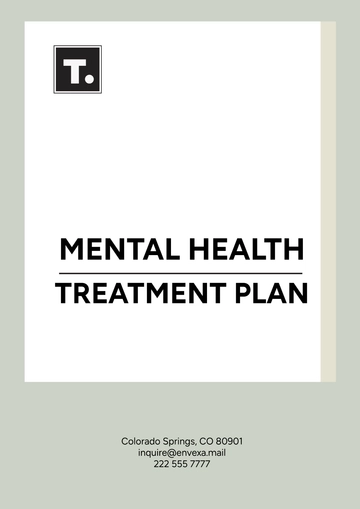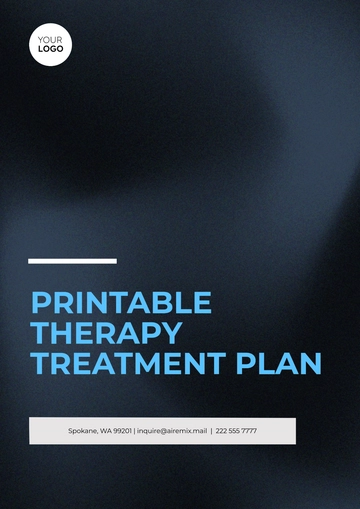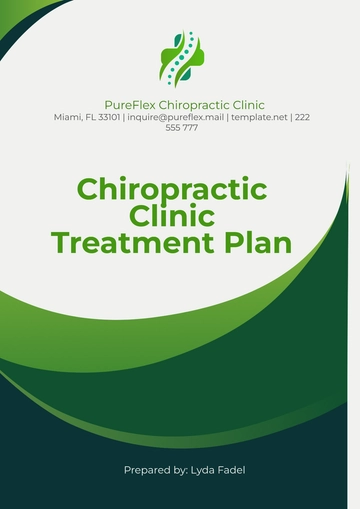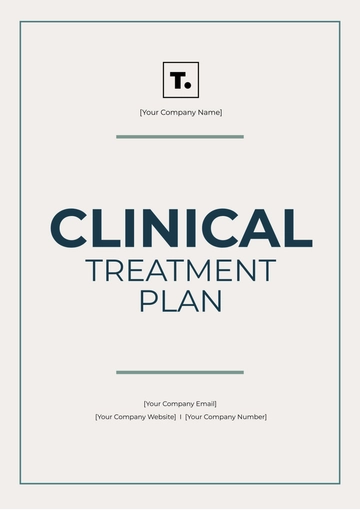Free Client Treatment Plan

Prepared by: [Your Name]
I. Client Information
Name: John Smith
Age: 35
Phone: 222 555 7777
Email: jsmith@email.com
II. Presenting Problems
John Smith, a 35-year-old male, presents with a complex history of substance abuse, primarily involving alcohol and opioids. Over the past five years, John has reported daily consumption of these substances, resulting in severe physical and psychological dependence. His substance use has led to significant impairment in various areas of his life, including strained relationships with family and friends, frequent absenteeism from work, and financial instability. John also experiences debilitating withdrawal symptoms when attempting to abstain from alcohol or opioids, further complicating his efforts to achieve sobriety.
He also struggles with low self-esteem, feelings of guilt, and a sense of hopelessness about his future. Despite multiple unsuccessful attempts to quit using substances independently, John acknowledges the need for professional help and expresses a strong desire to overcome his addiction and rebuild his life.
III. Diagnosis
Substance Use Disorder (Severe) with a primary focus on alcohol and opioid dependence.
IV. Long-term Goal
Achieve and maintain long-term sobriety, leading to improved overall health, stable social relationships, and successful reintegration into the workforce.
V. Short-term Objectives
Objective | Intervention | Timeline | Expected Outcome |
|---|---|---|---|
Detoxification and stabilization | Complete a supervised detoxification program at [Clinic/Facility Name] to safely manage withdrawal symptoms under medical supervision. | Within the next 7 days | John will achieve stabilization, demonstrating reduced acute withdrawal symptoms such as tremors and agitation. |
Assessment and treatment planning | Conduct a comprehensive assessment by a licensed addiction counselor to identify underlying factors contributing to substance use, including triggers, co-occurring mental health disorders, and psychosocial stressors. | Within 14 days following detoxification | John will gain insight into his substance use patterns and develop a personalized treatment plan addressing identified needs. |
Skill-building and relapse prevention | Engage in weekly cognitive-behavioral therapy (CBT) sessions with a licensed therapist to develop coping skills, identify and challenge maladaptive thought patterns, and implement relapse prevention strategies. | Ongoing throughout treatment | John will demonstrate increased awareness of triggers, improved coping mechanisms, and a decreased risk of relapse. |
VI. Timeline of Treatment
The duration of John's treatment is expected to span approximately six months, although this timeframe may be adjusted based on his progress and response to interventions. During this period, John will engage in a comprehensive treatment program aimed at addressing the underlying factors contributing to his substance use, developing coping skills, and promoting sustained recovery. The treatment plan will incorporate multiple modalities, including detoxification, individual therapy, group therapy, and medication-assisted treatment as needed.
Regular assessments and reviews of treatment goals will be conducted to track progress, evaluate outcomes, and make necessary adjustments to the plan. Throughout treatment, John will receive ongoing support from a multidisciplinary team of healthcare professionals, peers, and support systems to facilitate his journey toward sobriety and improved well-being.
VII. Progress Monitoring and Evaluation
Throughout the treatment process, progress will be monitored closely to assess response to interventions and ensure optimal outcomes. This will include weekly assessments of substance use, cravings, mood, and functioning during therapy sessions. Regular review of treatment goals and objectives will likewise be conducted to track progress, evaluate outcomes, and make adjustments to the treatment plan as necessary. Collaboration with other healthcare providers and support systems will further facilitate comprehensive monitoring and holistic care.
- 100% Customizable, free editor
- Access 1 Million+ Templates, photo’s & graphics
- Download or share as a template
- Click and replace photos, graphics, text, backgrounds
- Resize, crop, AI write & more
- Access advanced editor
Ensure precise and effective client management with the Client Treatment Plan Template offered by Template.net. Fully customizable and downloadable, this template allows for detailed documentation of treatment goals and progress. Editable in our AI Editor Tool, it adapts seamlessly to your specific requirements. Print your tailored plans to provide a professional and organized approach to client care, facilitating improved therapeutic results.
You may also like
- Finance Plan
- Construction Plan
- Sales Plan
- Development Plan
- Career Plan
- Budget Plan
- HR Plan
- Education Plan
- Transition Plan
- Work Plan
- Training Plan
- Communication Plan
- Operation Plan
- Health And Safety Plan
- Strategy Plan
- Professional Development Plan
- Advertising Plan
- Risk Management Plan
- Restaurant Plan
- School Plan
- Nursing Home Patient Care Plan
- Nursing Care Plan
- Plan Event
- Startup Plan
- Social Media Plan
- Staffing Plan
- Annual Plan
- Content Plan
- Payment Plan
- Implementation Plan
- Hotel Plan
- Workout Plan
- Accounting Plan
- Campaign Plan
- Essay Plan
- 30 60 90 Day Plan
- Research Plan
- Recruitment Plan
- 90 Day Plan
- Quarterly Plan
- Emergency Plan
- 5 Year Plan
- Gym Plan
- Personal Plan
- IT and Software Plan
- Treatment Plan
- Real Estate Plan
- Law Firm Plan
- Healthcare Plan
- Improvement Plan
- Media Plan
- 5 Year Business Plan
- Learning Plan
- Marketing Campaign Plan
- Travel Agency Plan
- Cleaning Services Plan
- Interior Design Plan
- Performance Plan
- PR Plan
- Birth Plan
- Life Plan
- SEO Plan
- Disaster Recovery Plan
- Continuity Plan
- Launch Plan
- Legal Plan
- Behavior Plan
- Performance Improvement Plan
- Salon Plan
- Security Plan
- Security Management Plan
- Employee Development Plan
- Quality Plan
- Service Improvement Plan
- Growth Plan
- Incident Response Plan
- Basketball Plan
- Emergency Action Plan
- Product Launch Plan
- Spa Plan
- Employee Training Plan
- Data Analysis Plan
- Employee Action Plan
- Territory Plan
- Audit Plan
- Classroom Plan
- Activity Plan
- Parenting Plan
- Care Plan
- Project Execution Plan
- Exercise Plan
- Internship Plan
- Software Development Plan
- Continuous Improvement Plan
- Leave Plan
- 90 Day Sales Plan
- Advertising Agency Plan
- Employee Transition Plan
- Smart Action Plan
- Workplace Safety Plan
- Behavior Change Plan
- Contingency Plan
- Continuity of Operations Plan
- Health Plan
- Quality Control Plan
- Self Plan
- Sports Development Plan
- Change Management Plan
- Ecommerce Plan
- Personal Financial Plan
- Process Improvement Plan
- 30-60-90 Day Sales Plan
- Crisis Management Plan
- Engagement Plan
- Execution Plan
- Pandemic Plan
- Quality Assurance Plan
- Service Continuity Plan
- Agile Project Plan
- Fundraising Plan
- Job Transition Plan
- Asset Maintenance Plan
- Maintenance Plan
- Software Test Plan
- Staff Training and Development Plan
- 3 Year Plan
- Brand Activation Plan
- Release Plan
- Resource Plan
- Risk Mitigation Plan
- Teacher Plan
- 30 60 90 Day Plan for New Manager
- Food Safety Plan
- Food Truck Plan
- Hiring Plan
- Quality Management Plan
- Wellness Plan
- Behavior Intervention Plan
- Bonus Plan
- Investment Plan
- Maternity Leave Plan
- Pandemic Response Plan
- Succession Planning
- Coaching Plan
- Configuration Management Plan
- Remote Work Plan
- Self Care Plan
- Teaching Plan
- 100-Day Plan
- HACCP Plan
- Student Plan
- Sustainability Plan
- 30 60 90 Day Plan for Interview
- Access Plan
- Site Specific Safety Plan
